I am trying to get function content (body) if the function's name matches a defined pattern
what I tried so far:
(Step1) get with a recursion all function bodies in a define C file {(?:[^{}]+|(?R))*+}
(Step2) find all matches of wanted function' s name
(Step3) Combine both steps. This where I am struggling
Input
TASK(arg1)
{
if (cond)
{
/* Comment */
function_call();
if(condIsTrue)
{
DoSomethingelse();
}
}
if (cond1)
{
/* Comment */
function_call1();
}
}
void FunctionIDoNotWant(void)
{
if (cond)
{
/* Comment */
function_call();
}
if (cond1)
{
/* Comment */
function_call1();
}
}
I am looking for the function TASK. When I add the regex to match TASK in front of "{(?:[^{}]+|(?R))*+}", nothing works.
(TASK\s*\(.*?\)\s)({((?>[^{}]+|(?R))*)})
Desired Output
Group1:
TASK(arg1)
Group2:
if (cond)
{
/* Comment */
function_call();
if(condIsTrue)
{
DoSomethingelse();
}
}
if (cond1)
{
/* Comment */
function_call1();
}
